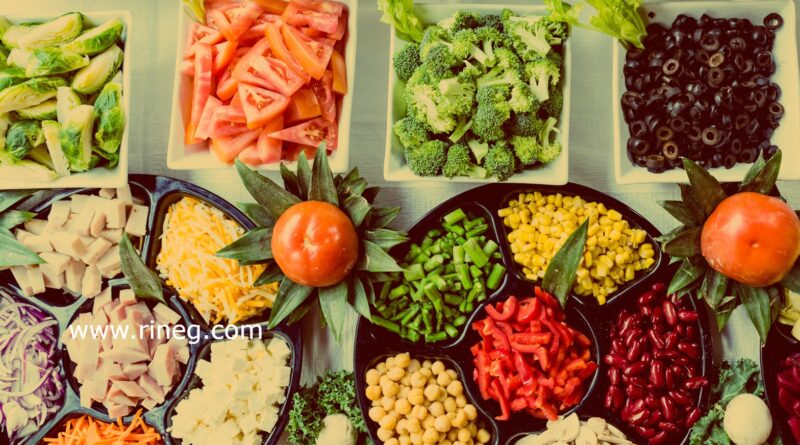Eating clean: A Healthier You
Eating clean involves making healthy food choices and prioritizing whole, unprocessed foods while minimizing the consumption of processed and unhealthy options. Here are nine ways to incorporate clean eating into your lifestyle.
Choosing whole foods
Picking food varieties as near their normal structure as conceivable is a key piece of a solid eating routine. For instance, replace canned, bagged, or packaged food sources with new, entire food varieties. Think whole turkey instead of frozen turkey meatballs, or raw grapes instead of fruit juice jelly beans. Tip: If you choose to avoid highly processed foods such as potato chips, cookies, and convenience foods, you will be avoiding their high content of calories, sugar, salt, and fat.
Eat more whole grains
At the point where you eat refined sugars like white bread, pasta, and rice, their health benefits diminish in the assembly system. A smarter choice is to substitute them with whole grain options like whole wheat bread, whole wheat pasta, and brown or wild rice. Growing your eating routine to incorporate a different scope of other whole grains like cereal, popcorn, corn, or bulgur can be equally critical. Studies show that embracing an eating routine abundant in whole grains might bring down the risk of medical issues like coronary illness, type 2 diabetes, and colon cancer.
Load Up on Fruits and Veggies
These natural foods are two important pillars of a healthy diet. Some healthy eaters say that all fruits and vegetables should be fresh. But others say frozen and canned are the best option because they contain just as many nutrients. Just read the label to make sure you’re not getting too much sugar or salt. Also, choose whole fruits over juices, which contain less fiber and more sugar. Try to eat at least five to nine portions of fruit and vegetables a day, depending on your calorie needs and level of physical activity.
Watch Out for Salt and Added Sugar
Clean foods are naturally low in salt and sugar, and adding them goes against the “most natural possible” approach. Processed foods are a rich source, so you can reduce your intake by avoiding them. But read food labels for added sweeteners and salt, even in seemingly healthy foods like yogurt or tomato sauce. Also, keep an eye on the quantity you add to your food and drinks. Try to flavor them with spices and herbs if possible.
Skip Artificial Ingredients
Artificial colors, sweeteners, conservatives, and other artificial ingredients have no place in a healthy diet. At the grocer’s, read labels and avoid products containing artificial substances.
Rethink Alcohol and Caffeine
There are varying dietary approaches when it comes to caffeine intake. Some health-conscious individuals eliminate it in favor of staying well-hydrated with water. Conversely, others advocate for its consumption in moderation for example, most experts recommend limiting your caffeine intake to about 400 milligrams per day, regardless of your dietary choices. That’s about three to five 8-ounce cups of espresso. They also recommend one serving of alcohol for women and two for men. Avoid sweet supplements too: opt for plain tea or coffee, and avoid sweet mixes for alcohol.
Sip Plenty of Water
Consider low-calorie choices like water and herbal tea rather than sweet soft drinks and organic product juices. Water additionally assists you with feeling more full and less eager. Are you missing flavored drinks?
Try infusing your water with a slice of citrus fruit or a sprig of mint.
Decide If You’ll Go Organic
Organic produce is often recommended by some people as the optimal choice for a clean and healthy diet. This preference stems from the belief that organic farmers rely on natural pesticides and avoid synthetic ones. The decision to prioritize organic foods in your diet is ultimately up to you. In addition, researching your local market to understand the types of pesticides used can be informative.
Here’s one more piece of advice: Insecticides are generally found on the outer surfaces of fruits and vegetables. Consider choosing items without protective skins, such as avocados, corn, and onions, when choosing non-organic produce.
Be Smart About Meat and Dairy
The meat, dairy products, and eggs you buy at the store may come from animals treated with growth hormones and antibiotics. Healthy dieters avoid these and choose organic products or choose local sources that raise animals humanely. A farmer’s market is a good place to find out more about the origin of your meat and dairy products. Seafood isn’t labeled organic, so look for low-mercury, sustainably caught products. The cleanest approach to protein? Eat nuts, beans, and legumes.
Summary
Remember that clean eating is about making sustainable, healthier food choices that promote your overall well-being, not about strict rules or deprivation. It’s essential to find a balanced approach that works for your tastes and lifestyle while focusing on whole, nutrient-dense foods.

